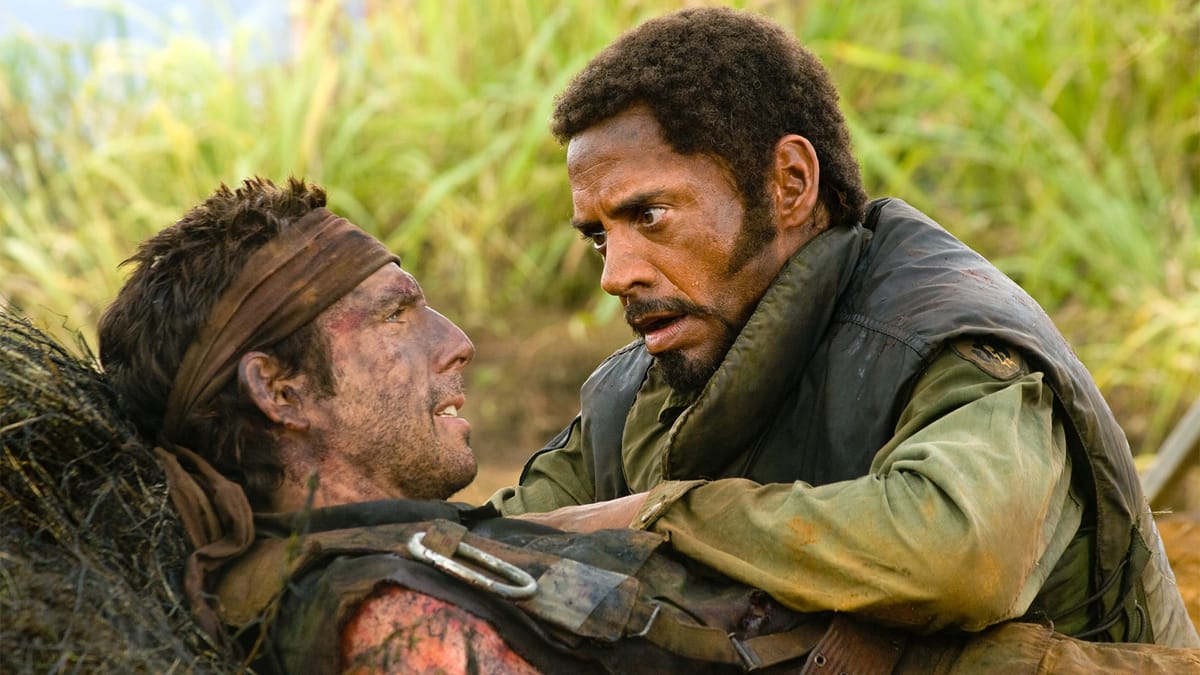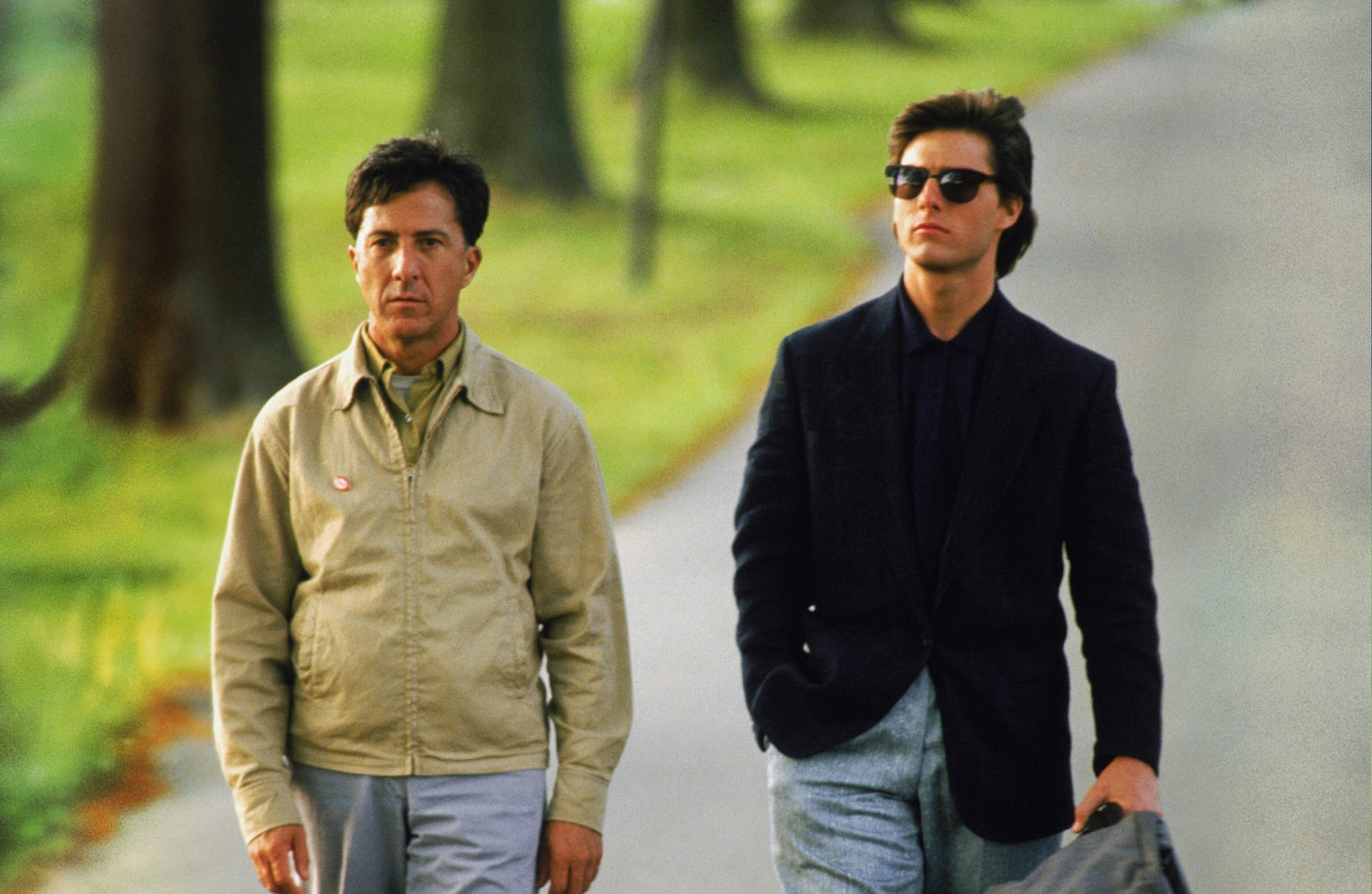An Excerpt From Popcorn Disabilities
Read this exclusive clip from my new book.

This post is free but it’s worth it to become a paid member of The Film Maven community! Paid subscribers are the backbone of The Film Maven who support independent journalism, as well as female- and disabled-created content. Paid Film Mavens get access to two-three exclusive articles a week including access to my series The Trade and Popcorn Disabilities, as well as the ability to chat with me on The Film Maven's Discord server.
Don't want to commit to a subscription? Leave a tip to show you enjoy what you're reading.
Are you a Film Maven subscriber or reader? If so you've probably already gotten my email asking to fill out this year's reader survey to help me find out what worked and what I could improve on in 2026. If you haven't filled out the survey yet consider doing so at this link!
Enjoy this excerpt from my latest book Popcorn Disabilities: The Highs and Lows of Disabled Representation in the movies. Buy the book here!
If you lived through 2008 you remember the controversy about Ben Stiller’s Tropic Thunder. The film tells the story of a group of spoiled actors making a Vietnam War movie and, through a series of comic errors, end up forced to become real soldiers when one of them is kidnapped by drug lords. It’s a hilarious send-up of big-budget Hollywood filmmaking, but that’s not what people latched onto upon release. Instead, the movie sparked a powder keg of controversy over a term one of the actors says: “full retard.”
Though I am not neurodivergent and do not have any cognitive disabilities, it would be ridiculous of a book like this not to look at the subject. And much of what is discussed in this chapter has been brought up by numerous disability scholars, those with and without cognitive disabilities. This is a broad swath, and I am not getting into the nitty-gritty regarding the authenticity of specific neurodivergent disabilities. This remains a launchpad for more writers to dive into those specific worlds.
The phrase is used as a derogatory description for actors who go overboard playing cognitively disabled characters. Actor Tugg Speedman (Stiller) discovers he falls into this category after playing a mentally disabled man named Simple Jack in a bid to be taken seriously as a dramatic actor. Scenes from the fictional movie Simple Jack are shown, including a Crayola scribbled title card. Speedman’s Jack speaks with a chronic stammer and sports large fake teeth and an unfortunate bowl cut. The performance is mocked and lampooned, the movie being more terrible than offensive; a faux Entertainment Tonight interview in the movie shows host Maria Menounos using Jack’s affected speech to make fun of Speedman.

As Speedman walks through the jungle with costar and Method actor Kirk Lazarus (Robert Downey Jr.), an Australian white man wearing blackface for his role in the fictional movie they’re shooting, Lazarus tells Speedman that his Simple Jack performance failed to bring in audiences because he went “full retard.” He deconstructs how far is too far when it comes to playing a mentally disabled character, mentioning Dustin Hoffman and Tom Hanks’s Academy Award-winning performances in Rain Man and Forrest Gump as examples of characters who have mental disabilities but aren’t so impaired as to be off-putting for an audience:
“Dustin Hoffman, Rain Man, look retarded, act retarded, not retarded. Counted toothpicks, cheated cards. Autistic, sho’. Not retarded. You know Tom Hanks, Forrest Gump? Slow, yes. Retarded, maybe. Braces on his legs. But he charmed the pants off Nixon and he won a Ping-Pong competition. . . . You went full retard, man. Never go full retard. You don’t buy that? Ask Sean Penn, 2001, I Am Sam. Remember? Went full retard, went home empty-handed.” As Lazarus’s speech lays out, Rain Man and Forrest Gump show their leads as high-functioning geniuses. Hoffman’s Ray is a mathematical savant whose brilliance is hidden by his disability. Gump has a low IQ and becomes a hero and prophet for American pop culture. The audience watching these movies feels inspired and galvanized, not uncomfortable. There’s a reason why imitations of Hanks’s and Hoffman’s characters are so pervasive, because they’re perceived as inoffensive and likable. And both films won Best Picture, giving them an air of quality.
The backlash against the phrase came fast. The Special Olympics and the American Association of People with Disabilities protested the film’s Los Angeles premiere, holding signs saying, “Call me by my name, not my label” and “Ban the movie, ban the word.” Dustin Plunkett, the global messenger for the Special Olympics at the time, said, “When I heard about it, I felt really hurt inside. I cannot believe a writer could write something like that. It’s not the way that we want to be portrayed. We have feelings. We don’t like the word ‘retard.’ We are people.”
The other actors, and director/cowriter Ben Stiller, were forced to respond. Robert Downey Jr. didn’t take a side, saying at the film’s premiere, “I think it’s open to interpretation and that’s the great thing. You know, if I want to protest something because it offends me, that’s my right as an American, and it’s also any artist’s right to say and do whatever they wanna do.” Stiller apologized for any offense taken but later said in a 2018 Twitter thread celebrating Tropic Thunder’s ten-year anniversary, “I make no apologies for Tropic Thunder. It’s always been a controversial movie since we opened. Proud of it and the work everyone did on it.” He went on to say, “Actually Tropic Thunder was boycotted ten years ago when it came out, and I apologized then. It was always meant to make fun of actors trying to do anything to win awards.”

Society now understands the word is a slur against disabled people, but when it comes to how Tropic Thunder uses it, it’s hard not to feel we’re not seeing the forest for the trees. People were so quick to latch onto the use of the word that it overshadowed what the movie is discussing with regard to cinematic portrayals of those with mental disabilities and how those stereotypical uses are rewarded with Oscars. Recall the audience response in the 1930s to watching Freaks. As Angela M. Smith writes in Hideous Progeny, when discussing the physically disabled in Freaks, “Viewers couldn’t watch ‘candid’ representations of physical disability without framing to distance themselves and help them explain and make sense of such bodies.”
The characters Kirk Lazarus references in Tropic Thunder that audiences enjoy, specifically Dustin Hoffman and Tom Hanks, are useful, charming, savantesque characters who don’t have overt facial tics to show them as disabled. Their mental disabilities are quirky and fun enough to not make an audience uncomfortable watching them. If an audience doesn’t have an able-bodied buffer to follow and is left to watch the disabled character solo said disabilities must be hidden or otherwise entertaining enough for them to reconcile with the difference disability creates...
Let’s break down the characters Kirk Lazarus uses in his speech and what they say about neurodivergence and cognitive disabilities. Autism in the movies is sold as an interesting mental eccentricity. As Alexandria Prochnow explains, “Although these characters are labeled as autistic, they are made out to be abnormal in behavior due to choice or personality, rather than their medical diagnosis . . . They fit in better with neurotypical people, because they embrace their ‘different’ traits and behaviors as inherent parts of themselves, instead of considering them symptoms of a disorder.”
Rain Man, the 1988 feature directed by Barry Levinson, is cited by neurodivergent and neurotypical people for its outdated stereotypes and its attempt to show what a “good” depiction of neurodivergence looks like—that is, what an audience should expect to see. The behavior of autistic character Raymond (Dustin Hoffman) is more a personality trait than a medical condition, meaning the audience embraces him because he is unique, not disabled. Don’t let the title fool you, Rain Man is actually about the selfish Charlie (Tom Cruise), who bonds with his estranged autistic brother, Raymond. Charlie is a spoiled brat who kidnaps Ray after discovering his older brother is the heir to their father’s estate. Charlie believes he’s entitled to some financial incentive and thinks having physical ownership of Ray gives him some leverage to entice the hospital Raymond lives in to provide Charlie with a settlement.

Rain Man may be in reference to Hoffman’s disabled character—”Rain Man” is the nickname Charlie gave his brother when he was little because Charlie couldn’t say “Raymond”—but it’s not 100 percent Raymond’s story. It’s about Charlie transitioning away from being an entitled schmuck into someone who genuinely cares for another human being. Never doubt the disabled community’s apparent capacity for making people better. Through Charlie’s crazed, illicit road trip with Raymond, the autistic man makes Charlie a kinder, better person. Charlie isn’t just Rain Man’s able-bodied buffer.
During the film’s runtime he transforms into a parental figure and caregiver for Raymond as well as brother and kidnapper. There’s something I refer to as caregiver cinema, a storytelling device in disabled narratives that spotlight the stories of parents, teachers, lovers, or siblings who, through expanding the disabled person’s worldview or perspectives, end up bettering themselves. Abled audiences see how the caretaker can’t have a life of their own because of the intense 24/7 care the disabled person requires. Rain Man falls into this category.
Screenwriter Barry Morrow took inspiration for Rain Man from his friendship with intellectually disabled savant Bill Sackter and said in a 2018 interview for The Guardian that he was generally unaware of what autism entailed before this. Because of his lack of knowledge on the topic, Morrow decided to focus less on Ray and his disability and more on Charlie and Ray’s relationship. Knowing a disabled person is a frequently used approach by creatives to utilize disabled lives as inspiration for a movie or TV project. It’s also used to stave off criticism, basing the story in some way on a real person or connection. Often, but not always, these endeavors are not written or aided in any way by people with disabilities, nor are the main characters disabled.
So when Morrow says that he didn’t want to focus on Raymond and his relationship to his disability, I believe that because Raymond’s life as shown in the movie is quaint, simplistic, and highly organized. The institution Ray lives in is a sprawling location with rolling, well-kept green lawns. The residents sit quietly, almost catatonic, and watch game shows. Ray reminds Charlie, and the audience, repeatedly that he eats dinner at a specific time (and certain foods on certain days) and lives his life around when Judge Wapner is on. If his schedule is deviated from one iota he becomes overwhelmed and volatile.
Upcoming Popcorn Disabilities Events
I'll be at The Frida Cinema December 1st where I'll be signing book before the 7pm show of Coming Home (1978) and introducing the movie. Buy tickets at this link.
On December 5th and 7th I'll be at the Dreamland Cinema in Sacramento introducing 2024's A Different Man. I'll be signing books before the screening on the 7th. Tickets available here.




